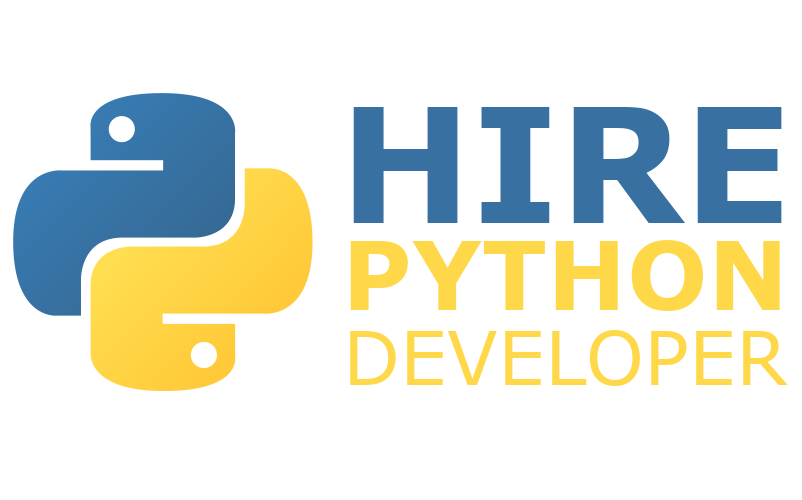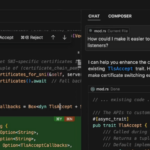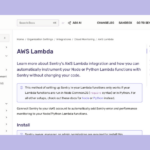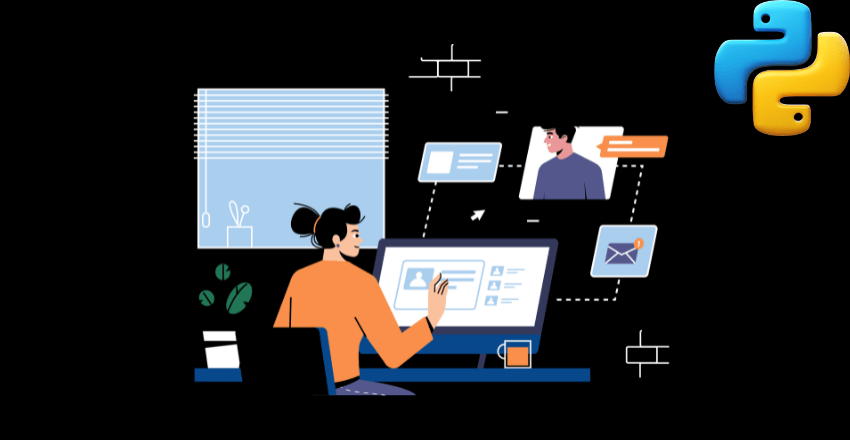 With remote project management, companies can take advantage of a global talent pool to manage their projects effortlessly. And what’s better than leveraging Python for remote project management?
With remote project management, companies can take advantage of a global talent pool to manage their projects effortlessly. And what’s better than leveraging Python for remote project management?
Python is a versatile and powerful programming language that can be used to develop complex applications, including project management tools. It offers a wide range of libraries and frameworks that facilitate communication, tracking project progress, and managing tasks within remote teams.
Hire Python Developer is a leading provider of dedicated English-speaking Python developers for outsourcing projects, specializing in expert remote project management.
Why Choose Remote Project Management?
Remote project management has become increasingly popular. Businesses are leveraging this approach to streamline project execution while minimizing costs. Here are some of the key benefits of remote project management:
- Efficient Project Management: Remote project management enables businesses to efficiently manage projects regardless of the staff’s location. Timely communication, consistent progress tracking, and seamless collaboration are key advantages.
- Seamless Collaboration: Remote project management tools and technologies make it possible to interact in real-time with team members, clients, vendors, and stakeholders across distances. These team members can be located anywhere in the world.
- Cost-effective Solutions: Remote project management solutions reduce costs associated with office space rental, commuting, and other expenses. These savings can be passed on to clients, making businesses more competitive in the marketplace.
Hire Python Developer provides dedicated English-speaking Python developers who can effectively manage projects remotely, helping businesses improve efficiency and streamline their project execution processes.
Leveraging Python for Remote Project Management
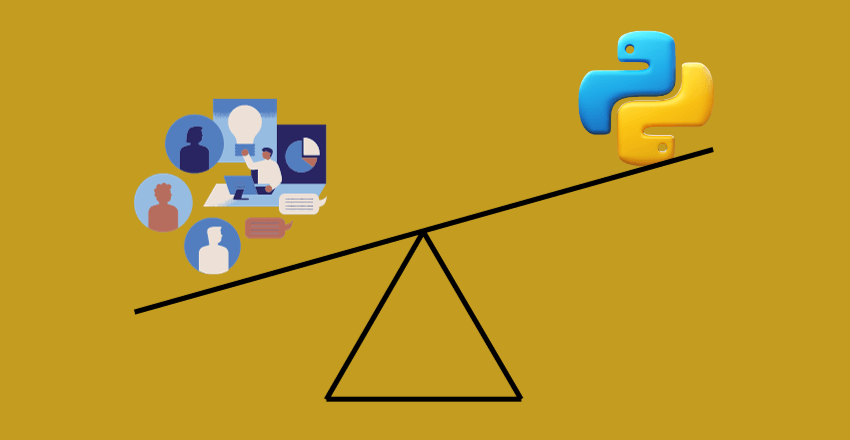
Python is a versatile programming language that offers a variety of tools and features that make it an ideal choice for remote project management. With its flexibility and robust libraries, Python allows for efficient communication, progress tracking, and task management within remote teams.
One of the key advantages of using Python for project management is its ability to connect with various APIs and web services, making it easy to integrate with other applications and tools. Python’s asynchronous processing and real-time data streaming capabilities also enable remote teams to work collaboratively and efficiently.
Python tools such as Jupyter notebooks, Pandas, and NumPy provide powerful data analysis and visualization capabilities, allowing project managers to easily monitor and analyze project progress, identify areas for improvement, and make data-driven decisions.
Python Libraries for Remote Teams
In addition to its built-in features, Python offers a wide range of libraries specifically designed for remote team collaboration. The PyGithub library, for example, allows teams to track code changes and collaborate on code development remotely. The pytest library provides a testing framework for Python code, enabling teams to ensure quality control remotely.
Other libraries, such as PyCharm and JupyterLab, provide powerful IDEs for remote teams, fully equipped with debugging capabilities, project management tools, and version control systems. These tools help ensure that remote teams stay organized and productive, even when working across different time zones and geographies.
Python for Agile Project Management
Agile methodology is a popular approach to project management that emphasizes flexibility, adaptability, and collaboration. Python’s versatility and robust libraries make it an ideal choice for implementing Agile methodology in remote project management.
Python’s ability to handle complex data structures and real-time data streaming makes it easy to manage project backlogs, track team progress, and prioritize tasks. Python libraries such as Scrum and Kanban provide frameworks for managing Agile teams and workflows remotely.
In conclusion, Python offers a wealth of tools and features that make it the ideal choice for remote project management. Its versatility, robust libraries, and collaboration tools enable remote teams to work efficiently and effectively, regardless of distance or location.
The Role of Dedicated Python Developers
Remote project management requires a team with specialized skills in managing projects efficiently. Dedicated Python developers are an essential part of any successful remote project management team. Their expertise in Python and experience in managing remote projects make them an indispensable asset.
When outsourcing Python projects, it is crucial to work with English-speaking developers to ensure clear communication and avoid misunderstandings. At Hire Python Developer, we provide dedicated English-speaking Python developers who specialize in remote project management. They have extensive experience working with clients in the USA and Canada, making them an ideal choice for businesses looking to outsource their Python projects.
Effective Collaboration Tools for Remote Teams
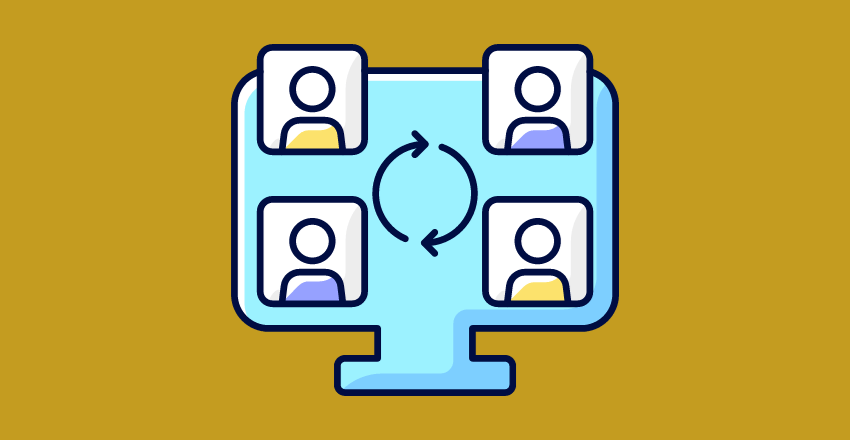
One of the biggest challenges in remote project management is ensuring smooth collaboration among team members. Fortunately, there are several collaboration tools and communication platforms that can assist in this task and enhance the productivity of remote teams.
Communication Platforms for Project Management
Communication is key in remote project management, and having the right tools to facilitate it can make all the difference. Here are some of the most popular communication platforms used for remote teams:
- Slack: This platform enables team members to communicate in real-time through channels and direct messages. It also integrates with other tools such as Trello and Google Drive.
- Zoom: A video conferencing tool that allows for face-to-face meetings, virtual presentations, and screen sharing. It has become a go-to tool for remote teams.
- Google Meet: Another video conferencing tool that is accessible through Google Calendar and Gmail. It is especially useful for team members who use G Suite.
- Asana: A project management tool that offers a communication feature for team members to share updates, comment on tasks, and ask questions.
Collaboration Tools for Remote Teams
Collaboration tools are essential for remote teams to work together seamlessly. Here are some of the most useful collaboration tools:
- Trello: A visual project management tool that allows team members to organize tasks on a virtual board. It makes it easy to track progress, assign tasks, and collaborate in real-time.
- GitHub: A web-based hosting service for version control and collaboration on software development projects. It has become an essential tool for remote developers.
- Notion: A versatile tool that combines project management, note-taking, and knowledge management. It is especially useful for remote teams that need to collaborate on various types of content.
By leveraging these communication platforms and collaboration tools, remote teams can stay connected, productive, and on track towards project completion.
Implementing Agile Methodology in Remote Project Management
Agile project management is a popular methodology for software development that stresses flexibility, collaboration, and iterative development. When implemented correctly, Agile can help remote teams overcome the challenges of distance and time zones to achieve greater efficiency and productivity.
To implement Agile in remote project management, it’s important to form Agile teams with the right mix of skills and experience. Ideally, these teams should be cross-functional, with members who possess different areas of expertise and can work together seamlessly.
One key element of Agile project management is the daily stand-up or Scrum meeting. During these meetings, team members provide progress updates, discuss any issues or challenges, and plan the day’s tasks. For remote teams, video conferencing or chat tools can be used to facilitate these meetings and enhance communication.
Agile Teams for Remote Projects
Agile teams also rely heavily on collaboration tools and software. Many Agile teams use tools like JIRA or Trello to track progress, manage tasks, and collaborate on projects. These tools can also be integrated with popular communication platforms like Slack or Microsoft Teams to enhance team communication and coordination.
Another key feature of Agile methodology is the sprint, or a period of time during which specific tasks must be completed. For remote teams, it’s important to set realistic sprint goals and establish clear deadlines to ensure that all team members can work towards a common objective.
Finally, it’s important for Agile teams to regularly reflect on their progress and adapt their approach as necessary. Remote teams can use tools like retrospective meetings or surveys to gather feedback and identify areas for improvement.
By implementing Agile methodology and forming Agile teams for remote Python projects, businesses can achieve greater adaptability, collaboration, and productivity.
Overcoming Challenges in Remote Project Management

Managing remote projects can be challenging, but with the right strategies and solutions, businesses can overcome these obstacles and ensure project success. Here are some common challenges faced in remote project management and practical solutions to manage them effectively:
Communication
Effective communication is crucial to the success of any project, but it can be particularly challenging in remote settings. To overcome this challenge, it is essential to establish clear communication channels, set expectations for response times, and ensure everyone has access to the necessary tools and technology. Encourage regular check-ins and updates to maintain open communication and address any issues promptly.
Time Zone Differences
Managing remote teams across different time zones can be a significant challenge, but it can also provide a unique advantage. To manage this challenge, establish clear guidelines for overlapping work hours and ensure all team members are aware of meeting schedules and deadlines. Utilize time zone converters and software applications that can accommodate remote workers in different locations. Encourage team members to be flexible and accommodating, as necessary, to ensure smooth collaboration.
Team Coordination
Coordinating remote teams can be challenging, but it is essential to ensure everyone is working towards the same goals. To manage this challenge, establish clear objectives, delegate tasks effectively, and encourage collaboration on shared documents and projects. Use project management software that allows for real-time updates and status tracking. Encourage teamwork and communication to foster a collaborative environment, regardless of location.
By recognizing common challenges and proactively implementing solutions, businesses can successfully manage remote projects. At Hire Python Developer, our dedicated English-speaking Python developers are experts in remote project management and can provide cost-effective solutions for outsourcing Python projects. Contact us today to learn how we can help you manage your remote Python project efficiently.
Best Practices for Remote Python Project Management
As remote work becomes more prevalent, it’s important to establish best practices for managing remote projects, especially when it comes to Python development projects. Here are some tips to help ensure your remote Python project runs smoothly:
1. Clearly define project goals and scope
Before starting any project, make sure the project goals and scope are clearly defined and communicated to all team members. This will help ensure that everyone is on the same page and working towards the same objectives.
2. Utilize project management tools
Using project management tools like Asana, Trello, or Jira can help keep everyone organized and on track. These tools allow for task delegation, progress tracking, and clear communication within the team, even when working remotely.
3. Establish regular check-ins and progress updates
Regular check-ins and progress updates are crucial for remote teams to stay on track. Setting up weekly or bi-weekly video calls or virtual meetings can help ensure that everyone is aware of the project’s progress and any potential obstacles.
4. Foster a strong team culture
Building a strong team culture can help keep remote team members engaged and motivated. Encourage team bonding activities, whether it’s virtual happy hours or team-building exercises, to promote a sense of camaraderie and collaboration.
5. Set clear expectations for communication
Establish clear expectations for communication, including response times and availability. This will help minimize miscommunications and ensure that team members are able to coordinate effectively despite different time zones and schedules.
6. Emphasize the importance of documentation
Documentation is critical for remote teams to stay on the same page. Encourage team members to document everything, from meeting notes to code changes, to ensure clarity and transparency.
By implementing these best practices, remote Python project management can be efficient, productive, and successful.
Connect with Hire Python Developer
If you’re considering outsourcing Python projects and hiring dedicated Python developers for your remote project management needs, look no further than Hire Python Developer. Our team consists of expert English-speaking Python developers who are highly skilled in remote project management and dedicated to delivering cost-effective solutions for businesses across the USA and Canada.
With Hire Python Developer, you’ll have access to a dedicated project manager who will act as your point of contact throughout the project and ensure seamless communication with your remote team. Our developers are proficient in a range of Python frameworks and libraries, making them well-equipped to handle complex Python projects and deliver efficient results within tight deadlines.
Outsourcing your Python projects to Hire Python Developer means you can take advantage of our expertise in remote project management while reducing your costs. Our flexible hiring models allow you to choose the best fit for your budget and project requirements.
Don’t let distance or time zones limit your business’s potential. Connect with Hire Python Developer today for all your remote Python project management needs and experience the benefits of outsourcing with expert dedicated Python developers.
FAQ

Q: What is remote project management?
A: Remote project management refers to the practice of managing projects and teams remotely, without the need for physical proximity. It involves using online tools and communication platforms to collaborate, track progress, and complete tasks.
Q: Why should I choose remote project management?
A: Remote project management offers several advantages, including increased efficiency, seamless collaboration regardless of distance, and cost-effective solutions. It allows teams to work from anywhere and eliminates the need for extensive travel or relocation.
Q: How can Python be leveraged for remote project management?
A: Python provides a range of features and tools that make it an ideal choice for remote project management. Its versatility and robust libraries enable efficient communication, tracking progress, and managing tasks within remote teams.
Q: What is the role of dedicated Python developers in remote project management?
A: Dedicated Python developers play a crucial role in remote project management. They possess expertise in managing Python projects remotely and ensure seamless collaboration, efficient task allocation, and regular progress updates.
Q: What are some effective collaboration tools for remote teams?
A: There are various collaboration tools and communication platforms available for remote teams. Some commonly used ones include Slack, Trello, Zoom, and Google Workspace. These tools facilitate seamless interaction and enhance productivity.
Q: How can Agile methodology be implemented in remote project management?
A: Agile methodology can be implemented in remote project management to promote flexibility, adaptability, and efficiency. Agile teams can effectively coordinate tasks, adapt to changing requirements, and deliver high-quality results in remote Python projects.
Q: What are some common challenges in remote project management?
A: Common challenges in remote project management include communication issues, time zone differences, and team coordination. However, these challenges can be overcome with proper strategies, such as regular communication, establishing clear expectations, and utilizing collaborative tools.
Q: What are some best practices for remote Python project management?
A: Some best practices for remote Python project management include efficient task allocation, regular progress updates, and maintaining strong team communication. It is important to establish clear goals, foster effective collaboration, and prioritize transparent communication.
Lydia is a seasoned technical author, well-versed in the intricacies of software development and a dedicated practitioner of Python. With a career spanning 16 years, Lydia has made significant contributions as a programmer and scrum master at renowned companies such as Thompsons, Deloit, and The GAP, where they have been instrumental in delivering successful projects.
A proud alumnus of Duke University, Lydia pursued a degree in Computer Science, solidifying their academic foundation. At Duke, they gained a comprehensive understanding of computer systems, algorithms, and programming languages, which paved the way for their career in the ever-evolving field of software development.
As a technical author, Lydia remains committed to fostering knowledge sharing and promoting the growth of the computer science community. Their dedication to Python development, coupled with their expertise as a programmer and scrum master, positions them as a trusted source of guidance and insight. Through their publications and engagements, Lydia continues to inspire and empower fellow technologists, leaving an indelible mark on the world of scientific computer science.
